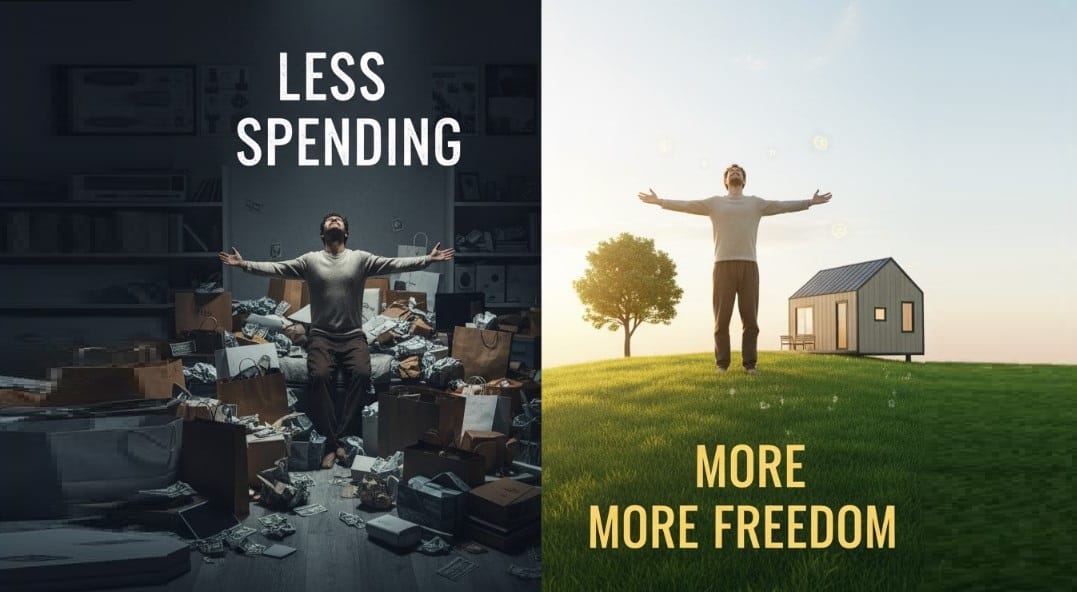In a world driven by consumerism, the philosophy of minimalism offers a refreshing perspective: spending less intentionally to gain more freedom, clarity, and financial security.
Minimalism isn’t about deprivation—it’s about aligning spending with values, reducing clutter, and reclaiming control over your money. By adopting minimalist principles, you can transform your financial habits, reduce stress, and build wealth in a meaningful way.
1. What Is Financial Minimalism?
Financial minimalism is the practice of:
- Spending intentionally on what truly matters
- Eliminating unnecessary purchases and distractions
- Simplifying financial systems like budgeting, accounts, and subscriptions
- Prioritizing long-term value over instant gratification
The goal is not simply to save money—but to gain freedom and control over life choices.
2. How Minimalism Impacts Your Financial Health
Adopting minimalism can have profound effects on finances:
A. Reduced Spending
By eliminating nonessential purchases, your disposable income increases, enabling savings, investments, and debt reduction.
B. Clearer Priorities
Minimalism encourages spending that aligns with personal values—on experiences, education, health, or relationships—rather than on societal expectations.
C. Simplified Financial Management
Fewer accounts, subscriptions, and assets mean easier tracking, less stress, and more deliberate financial decision-making.
D. Increased Emotional Resilience
Minimalism reduces anxiety tied to material possessions, status, or comparison, improving overall financial and emotional well-being.
3. Psychological Benefits of Financial Minimalism
Minimalism impacts the mind as much as the wallet:
- Reduced Decision Fatigue: Fewer choices around spending reduce stress
- Enhanced Gratitude: Appreciation for what you have increases satisfaction
- Lower Anxiety: Less pressure to keep up with trends or peers
- Stronger Self-Awareness: Spending aligns with personal goals and values
Minimalism transforms money from a source of stress into a tool for intentional living.
4. Practical Steps to Implement Financial Minimalism
A. Audit Your Spending
Track where your money goes and identify unnecessary expenses.
B. Simplify Subscriptions and Accounts
Cancel unused memberships, apps, or financial products that complicate your life.
C. Prioritize Value Over Quantity
Invest in quality, longevity, and meaningful experiences rather than impulse or status-driven purchases.
D. Automate Essentials
Use automatic savings, bill payments, and investments to reduce cognitive load and ensure financial consistency.
E. Create a Minimalist Budget
Focus on essentials, long-term goals, and intentional spending categories, leaving room for freedom and flexibility.
F. Mindful Spending Practices
Pause before purchases: ask if the item adds value, aligns with goals, or brings joy.
5. Long-Term Advantages of Minimalist Finances
By embracing minimalism, you can achieve:
- Financial Freedom: More control over spending and savings
- Reduced Debt: Less impulsive or unnecessary spending
- Greater Life Satisfaction: Focus on experiences, relationships, and personal growth
- Lower Stress and Anxiety: Simplified finances reduce emotional burden
Minimalism turns money into a means to live intentionally, rather than a tool for endless accumulation.
6. Overcoming Challenges
Minimalism isn’t always easy:
- Societal Pressure: Consumer culture encourages constant spending
- Fear of Missing Out (FOMO): Saying “no” to purchases may feel uncomfortable
- Habitual Spending Patterns: Breaking old habits takes intentional effort
Solutions include focusing on long-term benefits, building mindful habits, and celebrating progress rather than perfection.
Conclusion
Financial minimalism isn’t about giving up—it’s about gaining freedom, clarity, and control. By spending less on what doesn’t matter and investing in what does, you can reduce stress, build wealth, and align your finances with your values.
Less spending isn’t a limitation—it’s an invitation to live a life of intentional freedom and financial empowerment.


